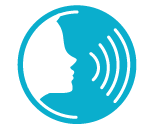What are avoidances and why to avoid them?
As most of you know, stuttering is a communication disorder that affects speech fluency. People who stutter often experience disruptions in the rhythm and flow, as they are trying to speak. Some of you may notice that you have more repetitions of sounds or syllables, while others may have prolongation of sounds or even blocks.
Stuttering tends to have a significant impact on a person’s life. This can lead to avoidance behaviors where the person sort of goes into hiding from situations which they know will make their stuttering very visible and obvious. Examples might include avoiding speaking in public, reading aloud, making new friends, etc. Avoidances also arise when we deliberately choose words that are easier for us to say, since we always feel that tension rising when a block or a stutter is about to come. Unfortunately, these avoidance behaviors can actually make your stuttering worse over time, since you are technically giving in to your stuttering and letting it take control of you.
In therapy, the first thing I work on is taking control of one’s speech and not letting their stuttering dictate the rules, as before. It is very important to work with a speech-language pathologist who actually specializes in therapy for stuttering since it is such a complicated speech disorder and must be addressed effectively.
With the right support and treatment, people who stutter can learn to manage their stuttering and overcome avoidance behaviors the way that I did and I can help you, as well. It’s time to start living a more fulfilling life and taking on one speaking fear at a time.



Leave a Comments